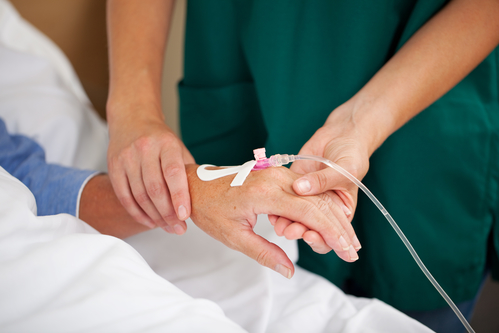Recognition of professional qualifications in EU still a problem
Claudia Delpero
It is still too difficult for people moving to another EU country to have their professional qualifications recognised, an assessment by the European Court of Auditors has found.
Although they have the right to move freely within the bloc, EU citizens who want to work or set up a business in another member state face many obstacles.
One of them is the recognition of professional qualifications that is required for regulated professions. About 6% of people moving within the EU are affected.
Nurses, teachers, carpenters and civil engineers are some of the regulated professions whose members move the most frequently within the EU.
An EU directive passed in 2005 aimed to facilitate the recognition of qualifications, preventing member states from imposing excessive conditions and guaranteeing similar qualification standards across the bloc.
However, the European Court of Auditors (ECA), an independent body that checks how EU funds are used and how EU legislation works, found that the system, “is sparsely used and applied inconsistently,” despite being “essential”.
Presenting the report, Stef Blok, former Dutch foreign affairs minister and ECA member responsible for the audit, said: “A nurse or mechanic who wants to work in another member state can be discouraged by the process of having their professional qualifications recognised: it can be a long and excessively bureaucratic process.”
“Huge differences”
“We found huge procedural disparities between member states when they apply EU rules,” Blok added.
Under the directive, EU member states can establish rules to access the regulated professions.
The Court found that each country regulates on average 212 professions, but the number varies significantly: there are 88 in Lithuania, 187 in the Netherlands and 415 in Hungary. There are also differences within countries. In Belgium, the profession of carpenter and joiner is regulated in the Brussels region, but not in Flanders, a Court representative said.
The way EU rules are applied is also very different, from the length of the recognition procedure to the documents requested, and the fees paid, which can go from zero to a maximum of €17,500 for the recognition of pilots’ licenses in the Netherlands. In the Netherlands, almost 40% of the applications incurred fees of more than €250.
Long waits
People can wait months to get a decision in Spain, France and Germany. In Austria, authorities ask nurses to have a postal address in the country before their qualifications are recognised, which is a requirement to get a job.
“The auditors also found instances where member states always impose a specific measure (additional training or a test) without providing applicants with justification,” the report says.
In other cases, they found “disproportionate prior checks to verify qualifications”.
Alert mechanism
But the report also said authorities were not acting on alerts from other countries in the Internal Market Information System, which was created to share relevant personal records and improve safeguarding.
It said EU nations were failing to exchange information “even when there were substantial reasons for doing so, such as misconduct, ongoing disciplinary measures or criminal convictions.”
“This is of particular relevance for professionals who are in direct contact with patients or minors,” the Court said.
Blok stressed that the Commission should make it mandatory for member states to use the alert mechanism during the recognition procedures.
He also said that for the decisions under the automatic recognition system, which concerns nurses, midwives, doctors, dentists, pharmacists, architects and veterinary surgeons, should be made in one month.
Between 2017 and 2021, according to data published by the Court, authorities in the Netherlands made 16,155 decisions on the recognition of professional qualifications, of which 8,991 positive and 3,776 negative.
Thank you for donating to DutchNews.nl.
We could not provide the Dutch News service, and keep it free of charge, without the generous support of our readers. Your donations allow us to report on issues you tell us matter, and provide you with a summary of the most important Dutch news each day.
Make a donation